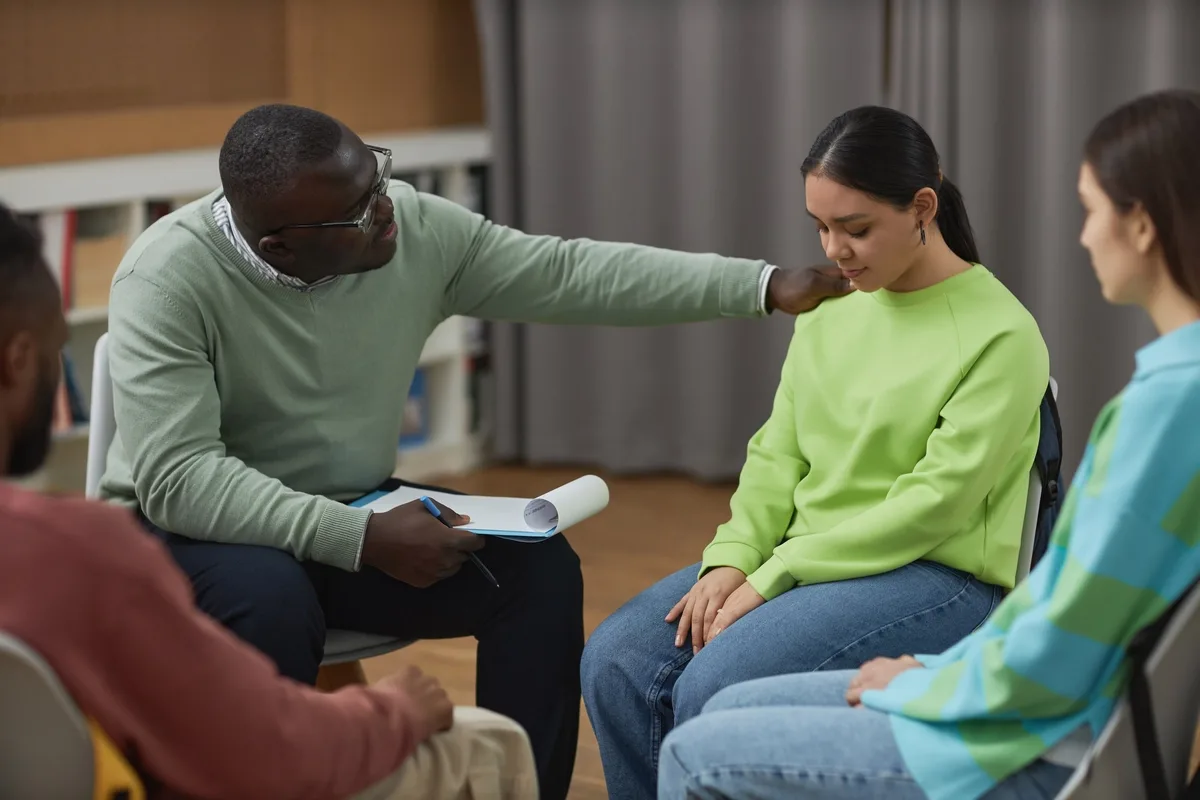24/7 Helpline:
(866) 899-221924/7 Helpline:
(866) 899-2219
Learn more about PTSD Treatment centers in Canoga Park
PTSD Treatment in Other Cities

Other Insurance Options

Amerigroup

Covered California

WellPoint

Carleon

CareFirst

Sutter

BlueCross

MHNNet Behavioral Health

Highmark

Premera

Ambetter

State Farm

Sliding scale payment assistance

GEHA

AllWell

Absolute Total Care

Magellan Health

BlueShield

Optum

Self-pay options

Wisdom Treatment Center
Wisdom Treatment Center is a private rehab located in Canoga Park, California. Wisdom Treatment Cent...

Looking Glass Counseling
Looking Glass Counseling is a private rehab located in Canoga Park, California. Looking Glass Counse...

Valley Women’s Center
Valley Women’s Center is a private rehab located in Canoga Park, California. Valley Women’s Center s...









